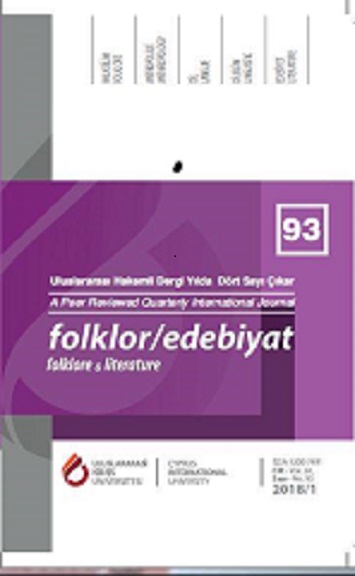Dishonesty and the Cost of Playing with Others’ Feelings in Anthony Trollope’s “The Way We Live Now”
Dishonesty and the Cost of Playing with Others’ Feelings in Anthony Trollope’s “The Way We Live Now”
Author(s): B. Cercis TanrıtanırSubject(s): Social history, Novel, Other Language Literature, Social development, Rural and urban sociology, 19th Century
Published by: Uluslararası Kıbrıs Üniversitesi
Keywords: Anthony Trollope; The Way We Live Now; dishonesty; great financier;
Summary/Abstract: The Victorian Period, beginning in 1837 and ending in 1901, is a period when British Imperial develops and expands with an unprecedented speed. This period brings England- the first industrialized country in the world- to the highest level of develeopment. During this period, rural based life styles change into urban based economy and modern life which results in increase in wealth. Cities experience rapid growth, life styles of people differentiate, the landscape changes and massive production replaces agricultural production. Despite the prosperity and optimism in this period, some difficulties associated with the rapid industrialization emerge. Unemployment, poverty and competitive desire for social security appear causing restlessness among the members of the British society. The authors of this period from Charles Dickens to Elizabeth Gaskel and Anthony Trollope handle the issues of Victorian period and keep a critical eye on the matters changing the structure of the community. The aim of his study is to reflect the effects of rapid industrialization through Anthony Trollope’s view. In his novel titled The Way We Live Now he presents the introduction of materaliasm characterized by a ‘’great financier’’ and the leakage of dishonesty- as the financial power- into economical, religious, social and political institutes of British Community is analyzed. This study, displays the excessive interest of both the institutes and individuals to dishonesty at the same time proves that financial benefits result in frustration. Additionally, the presentation of the cost of playing with others’ feelings and the significance of love and moral values are handled.
Journal: Folklor/Edebiyat
- Issue Year: 24/2018
- Issue No: 93
- Page Range: 55-62
- Page Count: 8
- Language: English

